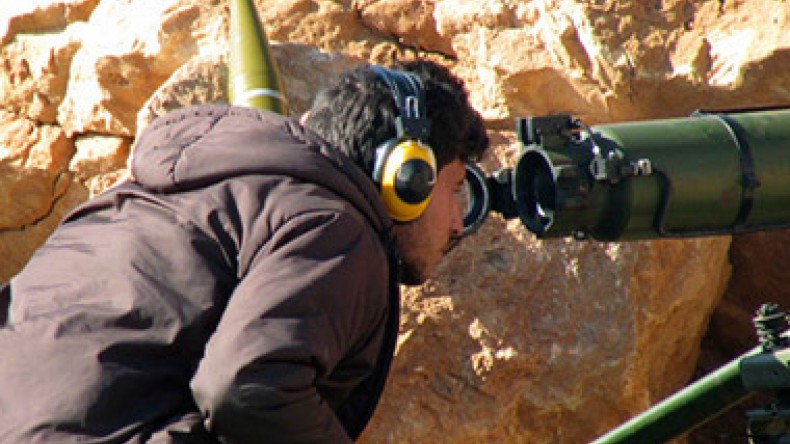
US supply of heavy weapons to Syria will ‘escalate slaughter’
The sudden shipment of anti-tank missiles to Syrian rebels from the US, which has so far been reluctant to supply any heavy weapons, is Washington's way of getting back at Russia by hitting the Assad government, political analyst Chris Bambery told RT.
On Monday, Israel’s Debkafile website reported that two moderate Syrian rebel militias, the Free Syrian Army and the Syrian Revolutionary Front, have been supplied with advanced US weapons — including armor-piercing, optically-guided BGM-71 TOW missiles.
RT: The US has been apparently reluctant since the start to send heavy weapons to Syria. Why would Washington be changing its mind now, if that is the case?
Chris Bambery: I think the answer is because of the cold war which is taking place between Russia and the United states over the whole question of Ukraine and Crimea, and I think once again the Americans see hitting the Assad regime as a way of getting back at Russia. So I think that’s a simple answer. I have to say I find it strange that we are hearing reports of these anti-armor weapons being given to these groups in Syria.
At the same time, here in London this week there’s going to be a conference expressing fears in the West about the number of jihadists who have gone to volunteer to fight in Syria and the fact that they could pose a threat when they come back. So we have British, European, Western governments worried about these heavy weapons. And as your report makes clear, yes they are providing them to these two groups who say they are pro-western, but these two groups say they actually cooperate with Salafist groups on the Al-Qaeda-linked ground. And secondly, we know as well that these groups have had difficulty defending their arms stocks from these groups when they come in. And I think the question I’m going to ask is, firstly, this is an escalation of course by providing these weapons — but where is it going to end?
The Americans gave Sergey Lavrov a promise they would not deliver anti-aircraft weapons to the Syrian rebels. The Saudis, having provided those weapons, the conduit through which these weapons have reached the rebels in Syria, will now be pressing Washington to provide anti-aircraft weapons — and if that happens, it’s going to be a significant escalation. So I think the West is opening up a Pandora’s box here and they don’t really know what they are doing. Once again, the Western policy towards Syria appears to be uncoordinated. On the one hand, they’re worried about jihadi groups operating in Syria and on the other hand, they’re providing heavy weapons such as this.
RT: What sort of role can they play in turning the tide in the Syrian conflict with weapons like these?
CB: It seems that the response of the Assad regime is to withdraw the heavy armor and step up the use of air power and artillery, which then of course the stepping up of air power will lead to sure voices from Riyadh demanding anti-aircraft weapons be supplied by the West to the Syrian rebels. But I would also have thought that with the help of Russia and elsewhere, they can quickly find ways of adding extra armor to the tanks to overcome this problem. It’s not insurmountable. But it will ring alarm bells in Russia and elsewhere around the world that actually the Americans are once again intervening in the Syrian conflict after the debacle of what took place last summer when Obama was stopped in his tracks from military intervention in Syria. Once again we’re talking about a civil war. Providing heavy weapons like this is just going to add to the slaughter and add to the civilian casualties. So I don’t know. I can’t find the rationale for Western policy in Syria. There doesn’t seem to be one, apart from seeing it as a way they can hit back at Russia, by hitting the Assad regime.
RT: The US and some of its European allies stopped short of a direct military intervention in Syria last year - is this position still tenable?
CB: I don't think there is any taste in the West, I mean they were stopped short by public opinion. If you remember, the House of Commons here in Britain voted against that because of the distaste people felt towards further military adventure after the lies of the Iraq war. But very quickly it became clear that public opinion in America was against military intervention in Syria.
I think it will be very difficult for Obama to now roll that back and directly intervene with troops or airstrikes, although his track record is not a good one, it has to be said when engaging in military adventures. But I think there's no public support for this, and hopefully this is as far as it goes. But as I say, the Saudis will be demanding that Washington increases its arms supplies to the rebels and they've demanded to provide anti-aircraft missiles to them.
Newsfeed
Videos






























